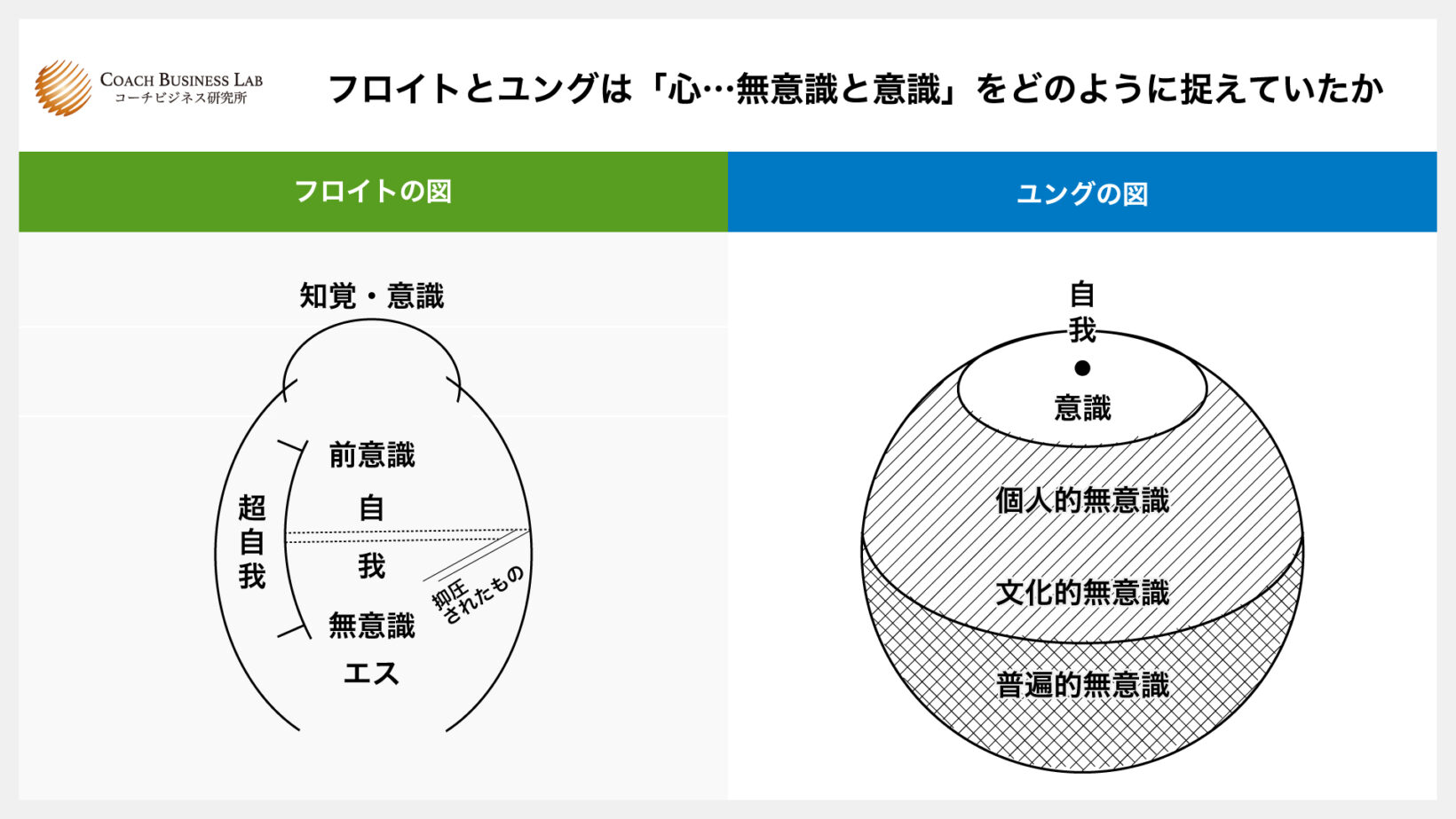Let me explain how Freud and Jung viewed “mind…unconscious and conscious” with a diagram.

I would like to introduce a passage from “Freud and Jung (Dai-san-bunmeisha/1989),” a dialogue between Keigo Okonogi, a Freudian, and Hayao Kawai, a Jungian.
Kawai: The transition of Freud’s diagram is very interesting. It will gradually change. After all, Jung did not write the diagram himself at all. Later, we and his disciples wrote the diagram on our own.
Okonogi: On the other hand, in Freud’s case, he clearly drew the diagram himself, didn’t he?
Kawai: That too has changed, hasn’t it?
Okonogi: In Freud’s case, when it came to the form of his theory, he ultimately had a medical or neurological model, and his premise was something like the anatomy of the brain.
Freud depicted the unconscious in the lower half of the space, and the ego devotes a large space in the center, including a partially unconscious layer. So Freud values the “reality principle” of the ego, which tames the unconscious es of the “pleasure principle,” which is anti-social.
On the other hand, if you look at Jung’s diagram, the ego is only a vertex, a very point. There is very little space for consciousness.
Jung says that most of the mind is occupied by the unconscious, and that the “universal (collective) unconscious” exists at a lower level of the “personal unconscious.
When I asked him why a schizophrenic patient was moving his head from side to side while looking at the sun, he replied that his penis was down from the sun, and when he moved his head from side to side, his penis moved in the same way and that is how the wind blows. Later, Jung would find the exact same description in an old Greek scripture. Patients who cannot read Greek have no way of knowing the scriptures. This convinced Jung that there is a universal unconscious embedded in humanity that is not influenced by individual upbringing.
In contrast to Jung, who presented a positive view of the unconscious as the source of “life energy,” Freud rejected Jung’s unconscious as unscientific because it was unique to each individual and viewed it negatively.
Thus, Jung left Freud. Jung’s ideas, which were not limited to psychology, would have a profound impact on the world, while also having a spiritual flavor.
コーチング情報局を運営する株式会社コーチビジネス研究所では、企業を対象としたコーチング研修、ビジネスパーソンを対象としたビジネスコーチング、個人の方を対象としたライフコーチングを提供しております。その他、コーチングを学びたい方のためのコーチングスクールの運営、経営者やビジネスリーダー向けにセミナーを開催しています。興味や関心がございましたら、お気軽にご相談・お問い合わせください。
This article was written in Japanese and converted into English using a translation tool. We hope you will forgive us for any inadequacies.
Coach Business Laboratory, Inc., which operates the Coaching Information Bureau, provides coaching training for companies, business coaching for business people, and life coaching for individuals. In addition, we operate a coaching school for those who want to learn coaching and hold seminars for executives and business leaders. If you are interested or have any questions, please feel free to contact us for further information and consultation.


